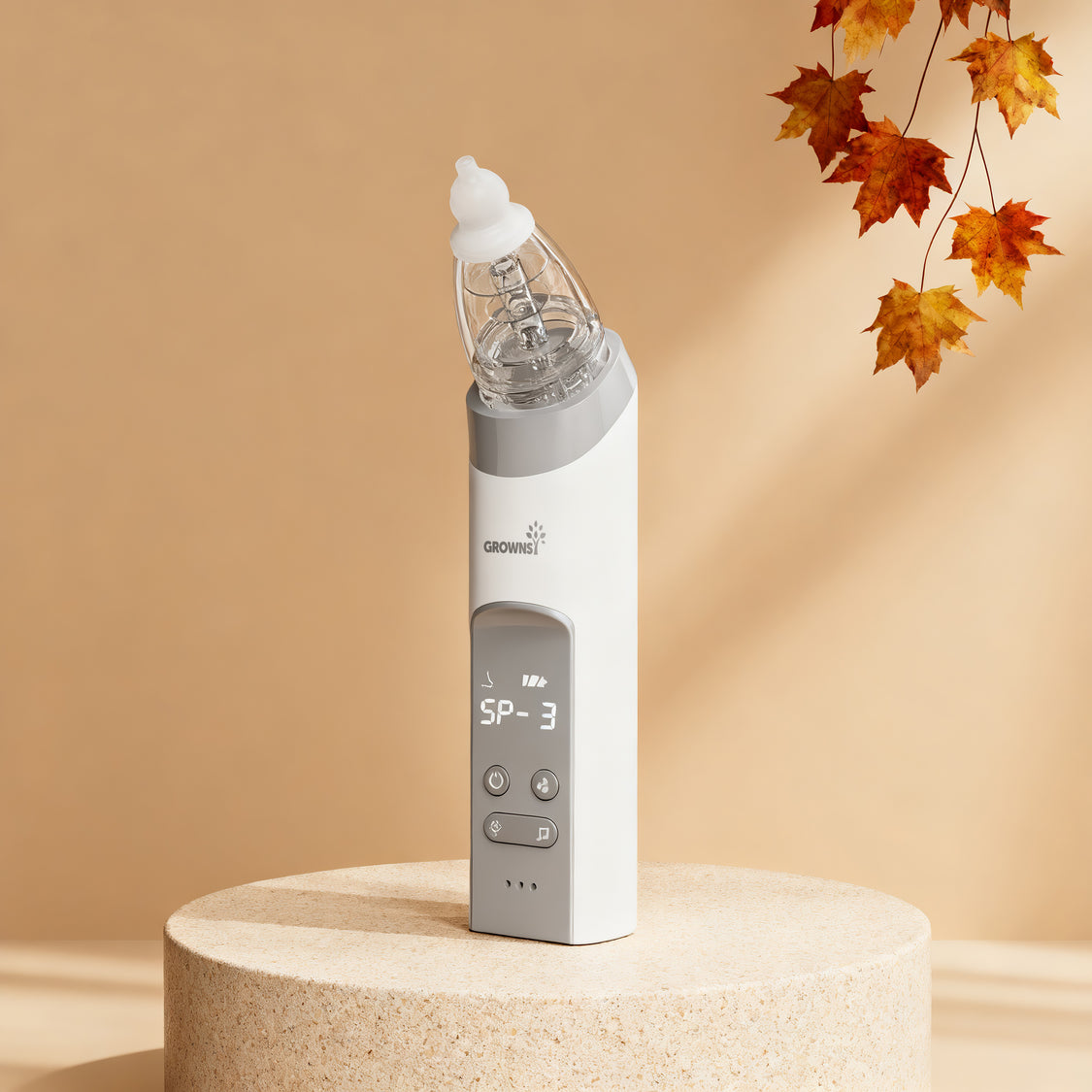Unlock the Secret to Your Baby's Comfort: Discover the Magic of Nasal Aspirators!
As parents, we want nothing but the best for our little ones, and that includes ensuring their comfort and health. One common issue that many babies face is nasal congestion, which can lead to fussiness, trouble sleeping, and difficulty feeding. This is where nasal aspirators come into play. Nasal aspirators are simple yet effective devices designed to help clear a baby’s nasal passages, providing relief from congestion and allowing them to breathe easier. Understanding how these tools work and their importance can significantly enhance your baby's well-being, making for happier days and restful nights.

Understanding Nasal Aspirators
Nasal aspirators are medical devices specifically designed to remove mucus from a baby’s nose. They work by creating a vacuum that draws out excess mucus, which can be particularly helpful during cold and allergy seasons. The typical anatomy of a nasal aspirator includes a soft tip to ensure comfort, a collection chamber for the mucus, and a mechanism for suctioning. Some aspirators are operated manually, relying on the parent's effort to create suction, while others are powered by batteries or electricity for ease of use. The basic principle is simple: by clearing nasal passages, these devices help babies breathe more freely, which is crucial for their overall comfort and health.
Types of Nasal Aspirators
When it comes to nasal aspirators, there are several types to choose from, each with its unique features and benefits. The most common types include bulb syringes, manual aspirators, and electric aspirators. Bulb syringes are the most traditional option and consist of a soft rubber bulb that is squeezed to create suction. They are easy to use but may require more effort to clear out thicker mucus. Manual aspirators, often designed with a mouthpiece, allow parents to control the suctioning process with their own breath, providing a more customizable experience. Electric aspirators, on the other hand, are battery or cord-operated and can provide consistent suction without the physical effort. While electric models tend to be more expensive, many parents find them worth the investment due to their efficiency and ease of use, especially during nighttime feedings when time is of the essence.
How to Use a Nasal Aspirator
Using a nasal aspirator may seem daunting at first, but with the right technique, it can be a straightforward process. Start by ensuring that you have all the necessary materials: the nasal aspirator, saline drops, and a clean tissue. Begin by instilling a few drops of saline into your baby's nostrils; this helps to loosen the mucus. Next, depending on the type of aspirator you're using, follow these steps: for a bulb syringe, squeeze the bulb, gently insert the tip into your baby's nostril, and then release the bulb to create suction. For manual aspirators, place the mouthpiece in your mouth, seal the tip against your baby's nostril, and then inhale gently. With electric aspirators, simply place the tip against your baby's nostril and turn the device on. After you’ve cleared the mucus, always clean the aspirator thoroughly to prevent any bacterial growth. Safety is paramount, so avoid inserting the tip too deeply into the nostril, and never use the aspirator more than a few times in a row to prevent irritation.
Benefits of Using Nasal Aspirators
The benefits of using nasal aspirators for babies are numerous and can significantly improve their quality of life. Firstly, by clearing nasal congestion, these devices help facilitate better breathing, which is crucial for feeding and sleeping. Parents often report that their babies sleep more soundly and calmly after using an aspirator. Additionally, removing mucus can help prevent ear infections, as clogged nasal passages can lead to fluid buildup in the ears. In fact, a friend of mine shared how using a nasal aspirator turned her restless nights into peaceful ones, as her baby was finally able to breathe easily during sleep. Experts recommend incorporating nasal aspirators into your baby care routine, especially during cold and allergy seasons, as they not only provide immediate relief but also contribute to overall health by reducing the risk of respiratory issues.
Essential Insights on Nasal Aspirators
In summary, nasal aspirators are invaluable tools for parents aiming to provide comfort to their babies. By understanding the various types of aspirators available, how to use them effectively, and the benefits they offer, parents can make informed decisions that enhance their child's well-being. Whether it's a stuffy nose from a cold or seasonal allergies, incorporating a nasal aspirator into your baby care routine can lead to improved breathing, better sleep, and a happier baby. Don't hesitate to explore this simple yet effective solution to nasal congestion—your little one will thank you for it!




